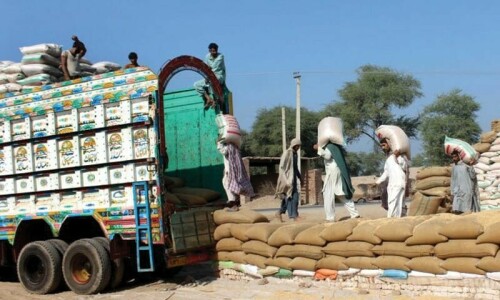LAHORE: Since headhunting is on to fill vacancies of judges in the Lahore High Court (LHC), the bar calls for more transparency in the elevation process and framing of rules for the functioning of the Judicial Commission (JC) to make the whole exercise acceptable for the legal fraternity.
At present there are 48 judges working in the LHC against a sanctioned strength of 60, while Chief Justice Sardar Muhammad Shamim Khan has reportedly almost finalised, with the consultation of senior puisne judge and other senior judges, around 15 nominees, including lawyers and district & sessions judges, to fill the vacant slots.
These names would soon be sent to the JC, headed by the chief justice of Pakistan, for a formal approval. However, it is not necessary for the commission to fill all the 12 vacancies at one go as it can pick the most suitable of the nominees now and defer the remaining.
The Pakistan Bar Council (PBC), top body of lawyers in the country, has been raising voice for transparency in the judges’ elevation, primarily to dispel an impression that priority has not been given to chamber fellows and “kith and kin” of the sitting judges in the process.
Also calls for restoring parliament’s role in the process
As critics say, a majority of the last batch of seven judges inducted in the LHC during October 2018 were either chamber mates or kith and kin of the sitting and retired judges. They think the flaws in the existing system also brought embarrassment for the JC when it had to send at least four additional judges of the LHC packing in recent past instead of confirming them after one-year probation, apparently because of their ‘unsatisfactory’ performance.
The lawyers also call for a constitutional amendment to restore the role of the parliament that has been curtailed through a Supreme Court judgement, making the “Parliamentary Committee” (PC) on judges’ appointment a redundant body.
PBC senior member Azam Nazir Tarar says the present functioning of the JC reflects a process where majority prevails upon minority. He believes that the parliament being mother of all institutions should be given an effective role in the judges’ appointment. In support of the parliament’s role, he also refers to a principle of natural justice that no one should be a judge in his own cause.
He regrets that the JC has been working without any rules of business despite several resolutions passed by the PBC. He says the bar’s nominees in the JC have been frequently questioning selection of the candidates through voting as judges are more in number in the commission as compared to other members i.e. attorney general, law minister and a bar representative.
Mr Tarar laments that the lack of transparency and monopolistic functioning of the JC has made the bar to talk about restoration of old mechanism for the judges’ appointment having role of the chief executive and the governor of the respective province.
He says the bar has been demanding a meaningful consultation within the JC and for this purpose a set of recommendations has also been furnished, on request, to a standing committee of the Senate. He demands that the JC should comprise of members from the parliament in addition to the judges and the bar representatives.
Raheel Kamran Sheikh, another senior PBC member, says transparency in the process of judges appointment or elevation can only be ensured if the system is open and transparent and based on objective criteria, which should be by and large accepted by legal fraternity.
He also points out that the PBC has passed several resolutions demanding amendments to the existing JC rules as these don’t outline any objective criteria such as number of reported cases, number of total cases conducted, juristic ability and diversity of the candidates, besides integrity and good temperament. He also questions absence of “meaningful consultation” within the JC.
He says if an objective criteria is laid down in the JC rules for the exercise of discretion by the chief justices of the high courts, not only will it help the commission to function transparently but the bar representatives in the commission, on the basis of feedback from bar councils and associations, will also be in a position to object to cases of obvious discrimination in ignoring meritorious lawyers for the slots.
Mr Sheikh concedes that the bar temporarily compromises on such demands every time one of the favourites of its leading group heads is accommodated and the judiciary seems to be comfortable with such arrangement.
He also agrees that through a 2011 judgment in “Munir Bhatti” case, the role of the Parliamentary Committee has been substantially curtailed. However, the PC can frame rules to contribute meaningfully to the process by adopting a fair procedure for inviting objections from public at large in relation to the nominees as soon as names for the elevations are announced.
He regrets that the PC has not been able to contribute much to the transparency and merit of the appointment process.
Published in Dawn, March 25th, 2019












































Dear visitor, the comments section is undergoing an overhaul and will return soon.